Be more than a student; be a leader.
Pave your way to becoming a better leader and citizen and strive to grow into one of the best military officers in the world! The United States' Army Reserve Officers’ Training Corps (ROTC) rose to recognition in 1916 with the signing of the National Defense Act, opening up the world of leadership training and bravery in young people across the nation. UC’s ROTC army program will mold you into the strongest, wisest, and most successful version of yourself and prepare you to enter into both the working and military world. Start your journey to uncovering your potential!
Be All You Can Be!
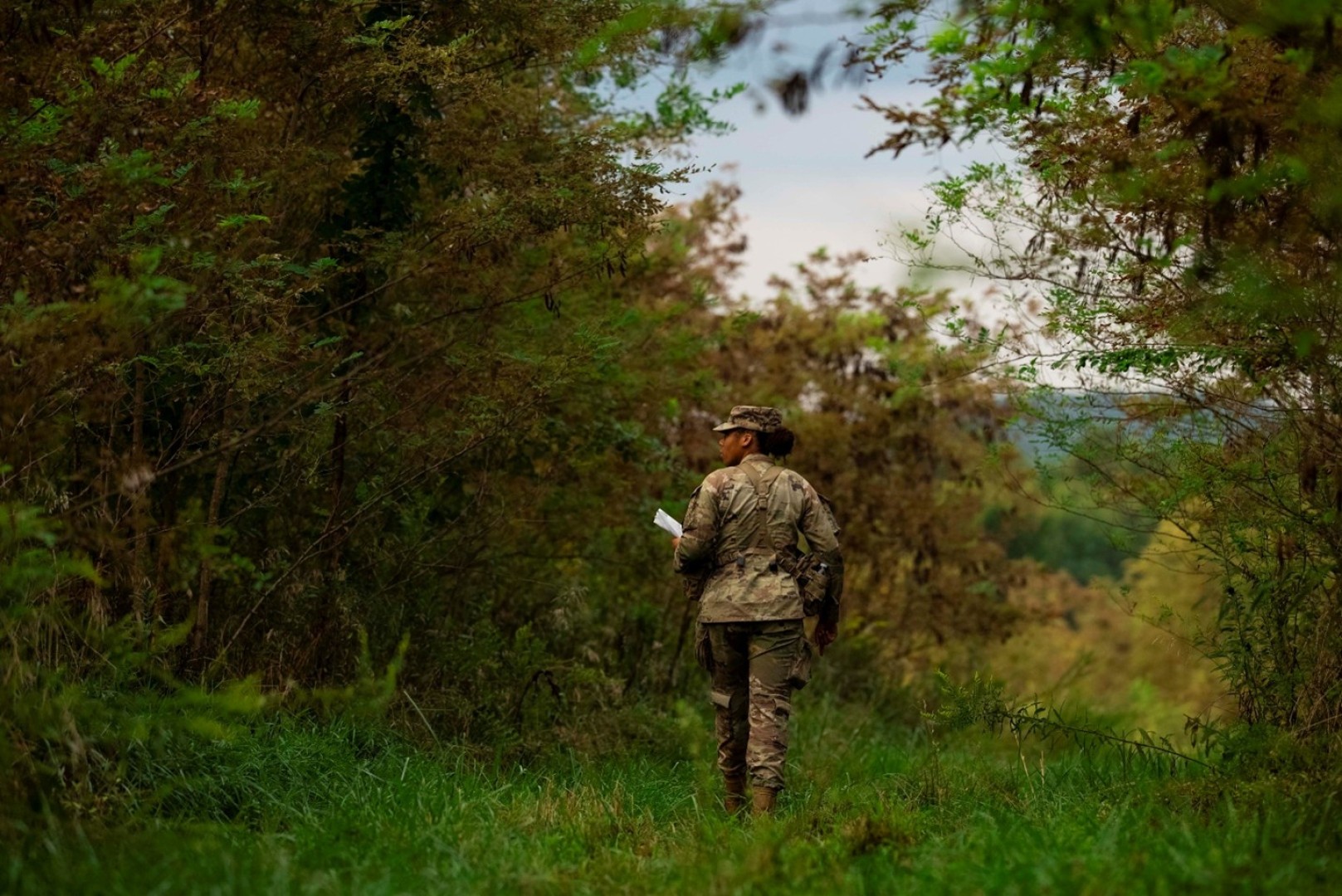
Program Information & Requirements
Strengthen your understanding of the Army’s mission, organization, and culture by develop your leadership skills. By earning a minor in Military Science, you get an inside look into how the army operates and have the opportunity to become a great leader. With skilled and determined professors ready to help you thrive, success is inevitable. Find your place amongst likeminded people and discover what it takes to excel in the army.
The Army ROTC Program is based upon a four-year model divided into two parts called the Basic Course (taken during the freshman and sophomore years) and the Advanced Course (taken during the junior and senior years). Students taking course in the Basic Course are under no military obligation (unless the student is under contract as a ROTC scholarship winner). However, students who complete the Advanced Course will incur a service obligation with the U.S. Army (four- to eight-years depending upon the component selected).
Program Goals
- Develop the students’ understanding of the Army’s mission, organization, culture, and problem-solving techniques.
- Develop the students’ leadership attributes and competencies in accordance with the Army’s Leadership Requirements Model (ALRM).
- Produce Commissioned Officers in the United States Army.
Minor Requirements
- MSL 101 Introduction to the Army
- MSL 102 Foundations of Leadership
- MSL 201 Leadership and Ethics
- MSL 202 Army Doctrine and Decision Making
- MSL 210 Basic Camp Practicum
- MSL 301 Training Management and the War Fighting Functions
- MSL 302 Applied Leadership in Small Unit Operations
- HIST 336 American Military History
- MSL 310 Advanced Camp Practicum
- MSL 401 The Army Officer
- MSL 402 Company Grade Leadership
High school students can begin the National Scholarship process starting February 1 of their junior year. If you need to schedule an appointment with our Professor of Military Science as part of the process, please contact Mr. Evan Dunaway by email or at 606-539-5185.
NOTE: All University of the Cumberlands Students can enroll in the Army ROTC Foundation Courses (MSL 101/102 OR 201/202) as an elective without any obligation to ROTC or the Army. Military Service obligation starts AFTER college graduation and completing the ROTC program requirements.
ROTC Scholarship Contracted Cadets Receive:
- 100% Tuition OR $6,000 per semester for Room and Board
- Tax-Free Monthly Stipend ranging from $420
ROTC Non-Scholarship Contracted Cadets Receive:
- 100% State Tuition Assistance (National Guard) OR Federal Tuition Assistance (Reserve)
- Tax-Free Monthly Stipend ranging from $420
- Receive E-5 Drill Pay ($350 2-Day Drill Weekend)
- Eligible for SMP Kicker ($350 monthly)
Students Must Meet Eligibility Criteria to Contract with the University of the Cumberlands Army ROTC.
To contract and receive Army ROTC financial opportunities, students must meet these requirements:
- Minimum cumulative GPA of 2.5 (Scholarship) OR 2.0 (Non-Scholarship)
- ACT/SAT For Scholarship Application (*Minimum Scores Are No Longer Required) *No ACT/SAT required for non-Scholarship options*
- Be medically qualified (Department of Defense Medical Evaluation Review Board; DODMERB)
- Able to pass the Army Combat Fitness Test with 60 points in each event
- Meet US Army height and weight standards
- Have no civil convictions
- Be approved by the Professor of Military Science
- Have at least two years of college remaining or three years at most
- U.S. Citizen/Permanent Resident
If you are interested in participating in The University of the Cumberlands Army ROTC beyond MSL 101/102 (Freshmen) or MSL 201/202 (Sophomore), schedule an interview with the ROTC Coordinator, Mr. Evan Dunaway to discuss potential career opportunities.
Current undergraduate and graduate students may qualify for Army ROTC scholarship and non-scholarship options as well as Army National Guard or Army Reserve opportunities.
If you wish to schedule an appointment with our Professor of Military Science, please contact Mr. Evan Dunaway by email or at 606-539-5185.
All UC Students can enroll in the Army ROTC Foundation Courses (MSL 101/102 OR 201/202) as an elective without any obligation to ROTC or the Army. Military Service Obligation starts AFTER Graduation and completion of EKU Army ROTC program requirements
ROTC Scholarship Contracted Cadets Receive:
- 100% Tuition OR $6,000 per semester for Room & Board
- Tax-Free Monthly Stipend starting at $420
ROTC non-Scholarship Contracted Cadets Receive:
- 100% State Tuition Assistance (National Guard) OR Federal Tuition Assistance (Reserve)
- Tax-Free Monthly Stipend ranging from $420
- Receive E-5 Drill Pay ($350 2-Day Drill Weekend)
- Eligible for SMP Kicker ($350 monthly)
Students Must Meet Eligibility Criteria to Contract with the University of the Cumberlands Army ROTC.
To contract and receive Army ROTC financial opportunities, students must meet these requirements:
- Minimum cumulative GPA of 2.5 (Scholarship) OR 2.0 (Non-Scholarship)
- ACT/SAT For Scholarship Application (*Minimum Scores Are No Longer Required) *No ACT/SAT required for non-Scholarship options*
- Be medically qualified (Department of Defense Medical Evaluation Review Board; DODMERB)
- Able to pass the Army Combat Fitness Test with 60 points in each event
- Meet US Army height and weight standards
- Have no civil convictions
- Be approved by the Professor of Military Science
- Have at least two years of college remaining or three years at most
- U.S. Citizen/Permanent Resident
If you are an enlisted Soldier in the Army National Guard OR Army Reserves you qualify for the Simultaneous Membership Program (SMP). SMP Cadets can compete for Active Duty under the non-scholarship option OR able to compete for the Guaranteed Reserve Forces Duty (GRFD) Scholarship but must remain Guard or reserves. Contact the ROTC Coordinator, Mr. Evan Dunaway, for more information by email or at 606-539-5185
Simultaneous Membership Program National Guard and Reserves:
Available to any full-time college student willing to join Army ROTC and Army National Guard OR Army Reserves. The SMP option is also available to current members of the Reserve Component (Army Reserve or National Guard) or non-scholarship ROTC cadets.
Requirements:
- Be enrolled in UC Army ROTC MSL course with a minimum of 2-YRs or 3-YRs maximum of an academic major to contract with ROTC (Undergraduate and Graduate students eligible)
- Full-time college student
- Join UC Army ROTC by enrolling in the MSL courses (MSL 101 or 102 Freshman, MSL 201 or 202 Sophomore)
- Join the Army National Guard or Reserves
- Attend UC Army ROTC classes “simultaneously” in both their assigned unit and their ROTC unit
- On track to complete bachelor’s degree or master’s degree with 2 years remaining (minimum) or 3 years (maximum)
- Complete Army ROTC program requirements to Commission as a Second Lieutenant
Simultaneous Membership Program (Non-Scholarship Option):
- Commission as a 2nd Lieutenant in your choice of the Army National Guard, or Reserves or compete for Active Duty.
- Will not be required to deploy while in school.
- Drill pays at E5 grade (or higher based on current rank) per month (about $350)
- 2-week annual training pay ($2000)
- Drill as a Cadet in the current unit or move units
- Army ROTC Stipend $420 monthly during semesters (Must be a contracted Cadet with EKU)
- Federal Tuition Assistance ($250 per credit hour up to 16 hours) National Guard and Reserves
- State Tuition Assistance Program (up to $60,000 total) National Guard ONLY
- G.I. Bill benefits start at $429 monthly for those who qualify with a $350 kicker monthly National Guard and Reserves MOS Qualified
National Guard and Reserves GRFD Scholarship (2-YR, 2.5-YR, 3-YR or 4-YR Options):
- GRFD scholarships cover 100% full tuition OR $12,000 Room and Board per-semester
- GRFD scholarships cover a $12,000 annual living allowance
- GRFD recipients receive $1,200 for books annually
- Graduate students can also apply if they have only two years remaining until they graduate
Cadets participate in the SMP program - GRFD scholarship recipients must be commissioned as a second Lieutenant in the National Guard or Reserves (CANNOT COMPETE FOR ACTIVE DUTY)
- Commission as a 2nd Lieutenant in the Army National Guard OR Reserves
- Will not deploy while contracted as a UC Army ROTC Cadet
- Drill Pay at E5 grade (or higher based on current rank) per month (about $350)
- Two weeks of annual training pay ($2,000)
- Army ROTC stipend of $420 monthly during semesters (Must be a contracted Cadet with UC)
- Federal Tuition Assistance ($250 per credit hour up to 16 hours) National Guard and Reserves
- State Tuition Assistance Program (up to $60,000 total) National Guard ONLY
- G.I. Bill benefits for those who qualify
You will incur an 8-year military obligation. Obligation will begin with commission (right after a degree is obtained).
If you are an enlisted soldier on Active Duty you may qualify for the Green to Gold program. The Green to Gold program provides options for Soldiers interested in pursuing a bachelor's or master's degree and earning a commission as an Army Officer.
The Green to Gold program offers three options:
- Scholarship
- Non-Scholarship
- Active-Duty Option
For more information contact the ROTC Coordinator Mr. Evan Dunaway by email or at 606-539-5185.
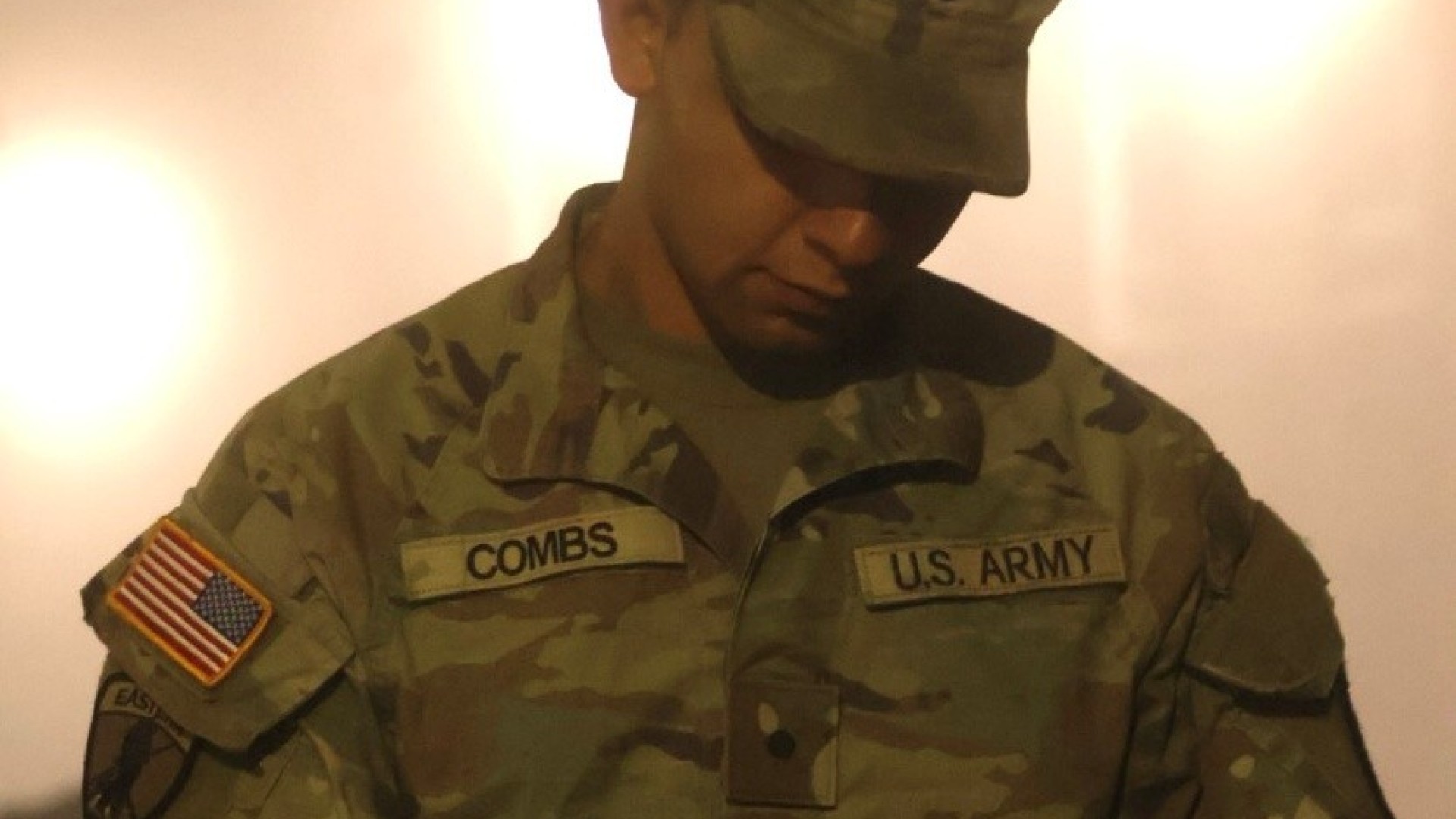
ROTC Resources
Reach Out For More Info
Frequently Asked Questions
No—Students are encouraged to take the course to determine if it is a path for them; however, students have until their junior year (MSL 301) to make the decision (except for scholarship winners). If a student elects to continue, he/she will sign a contract that brings a military service obligation.
Yes—Unlike military academies, students in our ROTC program can have a life outside of ROTC. You may choose to work a part-time job, participate in academic clubs, join a university sports team, and more.
Students within the ROTC program typically dedicate 7-10 hours a week to the program. 75%-80% of the cadet's focus should be on pursuing the academic goals.
Weekly Commitment:
- Monday, Wednesday, and Thursday for organized Physical Readiness Training (PRT) lasting one hour each.
- Monday and Wednesday for classroom instruction lasting an hour and 15 minutes each (MS Level 1 students have class on Wednesday only).
- Lab instruction takes place on Fridays either at Eastern Kentucky University’s Campus or at the University of the Cumberlands Campus.
Semester Commitment (Contracted Students Only):
- A 72-hour Field Training Exercise (FTX) (over a weekend) that takes place both in the fall and spring semesters.
- A military ball during the spring semester.
- Recruiting events.
Summer Commitment:
- 35-day summer training between your junior and senior year
Yes—There are scholarships for incoming high school students and current college students. High school students fill out their applications on the Army ROTC Website during the summer to early winter of their senior year of high school. College students compete in a Campus-Based Selection Board typically after the Fall Semester Mid-Term (contact the ROTC Department for details).
Students must be US Citizens, be able to commission before turning 35 years of age, possess a cumulative GPA of 2.5 (scholarship) or 2.0 (non-scholarship); meet Army Physical Fitness and Body Composition Standards; pass Department of Defense Medical Evaluation-Review Board guidelines; and obtain the Professor of Military Science endorsement. Students can contract as early as Freshman year.
Yes—Students can request enrollment into the ROTC program just like any other student, however, being a solider allows you to request to be part of the Simultaneous Membership Program (SMP) through the Professor of Military Science. Becoming an SMP Cadet allows a Cadet to receive additional pay entitlements (E-5 Drill Pay at their monthly drills / annual training - and - $420 monthly stipend throughout the academic year), making them eligible to compete for a commission within either the Active or Reserve Component of the Army.
No—All Cadets compete amongst their peers from across the nation for their component and branch (infantry, armor, aviation, etc.) We encourage our Cadets to make good grades and perform well on the PT test to increase their chances of getting the component and branch they want. However, Cadets can also take themselves out of the competition and elect to serve in the National Guard / Army Reserves. Cadets wanting to go this route can have the option of accepting a Guaranteed Reserve Forces Duty (GFRD) scholarship. This scholarship is typically chosen for individuals who want to pursue a more specialized profession (i.e., doctors, nurses, lawyers, etc.).
A few variables determine an Officer’s pay—the component of service, the duty location, and the dependent status (married / kids). To provide an example, a newly commissioned Second Lieutenant with no dependents and stationed at Fort Campbell, KY would earn approximately $58,509.39 a year. His / her basic pay is approximately $39,445.20. His / her basic allowance for housing is approximately $15,984.00 a year (non-taxable allowance that is designed to cover rent/utilities - fluctuates with the market and increases during promotions). His / her basic allowance for subsistence is approximately $3,080.16 a year (designed to cover the expenses at the duty location's dining facilities and ensure proper nutrition). What is not covered in the calculation are the items an Army Officer receives at no cost: Healthcare, Life Insurance, Moving Expenses, Gym Memberships, and On-Duty Location Retail Discounts (Post Exchange / Commissary).
For more information: https://www.goarmy.com/benefits/while-you-serve/money-pay
ROTC News
ROTC: Growing Leaders
Cumberlands ROTC staff ensures our students are developed into tomorrow's leaders
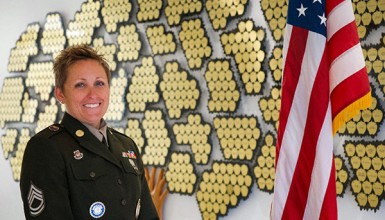
SFC Valerie Kelly
SFC Valerie Kelly
Contact Information
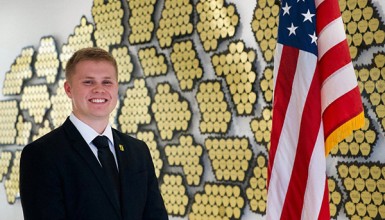
Evan Dunaway
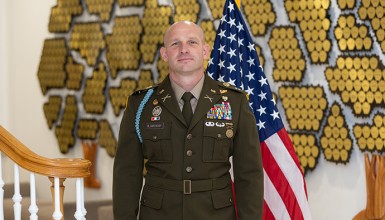
Captain Corey Blankenship
Captain Corey Blankenship
Contact Information
Support ROTC Programs
Commit to a better future with us by helping to provide a quality, affordable education for our students.